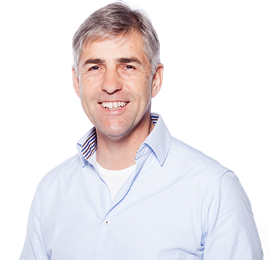Inverted Priorities: When Economists Set the Limits for Change
In many policy arenas, especially within the EU and other technocratic systems, politicians defer to economists to determine what is feasible. This tends to result in a narrow framing of possibilities: change is only allowed to the extent that it doesn’t disrupt markets, inflation targets, or competitiveness. In other words, economics becomes the boundary of imagination, rather than a tool for transformation.
Yet shouldn’t it be the other way around?
Shouldn’t society first ask:
- What kind of world do we want to live in?
- What conditions foster dignity, trust, sustainability, and shared prosperity?
And only then design an economic model to make that vision possible?
Why This Inversion Persists
Several factors reinforce this backward logic:
- Economic Reductionism: Policy success is measured in GDP, productivity, or debt-to-GDP ratios — not in wellbeing, ecological regeneration, or social cohesion.
- Fear of Market Reactions: Political risk is increasingly defined by how “the markets” respond, not how people thrive.
- Technocratic Fragmentation: Decision-making is siloed — environmental ministries push for change, while finance ministries apply brakes based on economic orthodoxy.
- Public Trust in “Neutral” Expertise: Economists are perceived as objective, even though economic models are built on normative (often growth-based or extractive) assumptions.
Rethinking the Role of the Economy
Movements like Doughnut Economics, Earth4All, and the Wellbeing Economy Alliance reverse this logic. They propose:
- Starting with ecological ceilings and social foundations (à la Kate Raworth)
- Redefining success beyond GDP (e.g. Bhutan’s Gross National Happiness, New Zealand’s wellbeing budgets)
- Centering lived experience and democratic input into what matters most
This is echoed in indigenous and feminist economic thought, where the economy is seen as a set of relationships, not merely transactions — and its purpose is to sustain life, not maximize surplus.
A Call for Civic Imagination
To move forward, we must reclaim the primacy of democratic visioning over technocratic constraint.
Let economists help build the bridges — but let the people decide where those bridges should lead.
“Economy should be a servant of life, not its master.”
– Adapted from EF Schumacher
Movements like Earth4All, Doughnut Economics, and the Wellbeing Economy Alliance are doing just that. They start with life, dignity, and sufficiency — not scarcity, competition, or growth.
🧭 It’s time we stop adapting people and the planet to fit economic models.
Instead, let’s build economic models that fit a thriving future for all.
Govert van Ginkel
This article is written by Govert van Ginkel. Govert specializes in Nonviolent and Effective Communication and is active in this field as a trainer, speaker, coach, and mediator. More information about Govert can be found here. The current training offer can be found here
Introduction-evening Nonviolent and Effective Communication
Are you curious about Nonviolent and Effective Communication but still wondering what it could do for you? Join us at the introduction evening and learn more!
more infoInspiration
Register for the ‘Nonviolent and Effective Communication Inspiration newsletter’
In-company training and accredited
company training
For companies, Govert offers customized training to suit your specific needs. Govert also provides accredited (in-company) training for mediators, interpreters, and other professionals.

















